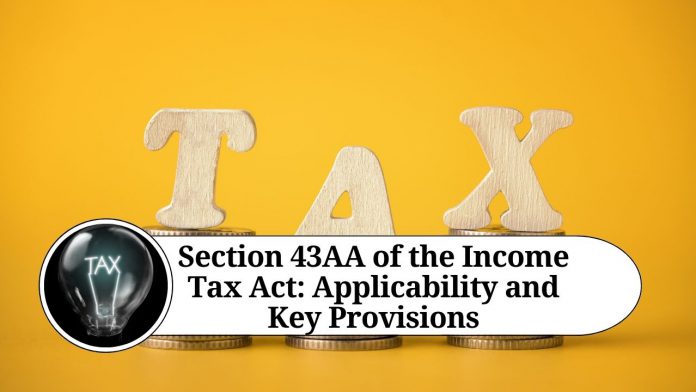Section 43AA of the Income Tax Act was introduced to provide a clear definition of the term “speculative transaction” and to bring clarity to the tax implications of such transactions. This section applies to taxpayers who deal in commodities, currencies, and certain financial instruments. Let’s take a closer look at this section to understand its applicability, key provisions and their implications.
Applicability of Section 43AA
Section 43AA applies to taxpayers who carry out transactions in commodities, currencies, and certain financial instruments. The section defines speculative transactions as any transaction in which a contract for the purchase or sale of any commodity, including stocks and shares, is settled otherwise than by the actual delivery or transfer of the commodity or scrip.
Key Provisions of Section 43AA
- Tax Treatment of Speculative Transactions: Under Section 43AA, speculative transactions are treated as a separate business from non-speculative transactions. Any profits or losses from speculative transactions are treated as business income or losses, and they are subject to tax under the regular tax provisions of the Income Tax Act. This means that the profits or losses from speculative transactions are not considered capital gains or losses.
- Eligibility for Set-off of Losses: Losses from speculative transactions can be set off only against profits from other speculative transactions. Losses from speculative transactions cannot be set off against non-speculative business income or any other source of income.
- Speculation Loss Carry Forward: If a taxpayer incurs losses from speculative transactions, they can be carried forward for up to four assessment years. However, the losses can be set off only against profits from speculative transactions in subsequent years.
- Audit Requirements: Taxpayers who carry out speculative transactions are required to get their accounts audited by a Chartered Accountant. This is applicable if the total turnover of the taxpayer exceeds Rs. 2 crore during the financial year.
Implications of Section 43AA
Section 43AA has significant implications for taxpayers who deal in commodities, currencies, and certain financial instruments. It is important for such taxpayers to maintain separate books of accounts for speculative transactions and non-speculative transactions. They must also keep accurate records of their transactions to ensure proper tax compliance.
In conclusion
Section 43AA of the Income Tax Act has brought much-needed clarity to the tax treatment of speculative transactions. It has defined speculative transactions and provided guidelines for their tax treatment. Taxpayers who deal in commodities, currencies, and certain financial instruments must comply with the provisions of this section to avoid any tax implications.
Read more useful content:
- section 234e of income tax act
- section 286 of income tax act
- section 90a of income tax act
- section 40a(7) of income tax act
- section 226(3) of income tax act
- section 24 of income tax act
Frequently Asked Questions (FAQs)
Q. What is Section 43AA of the Income Tax Act?
Section 43AA of the Income Tax Act provides a definition of speculative transactions and their tax treatment. It applies to taxpayers who carry out transactions in commodities, currencies, and certain financial instruments.
Q. Who does Section 43AA apply to?
Section 43AA applies to taxpayers who deal in commodities, currencies, and certain financial instruments.
Q. What is a speculative transaction?
A speculative transaction is any transaction in which a contract for the purchase or sale of any commodity, including stocks and shares, is settled otherwise than by the actual delivery or transfer of the commodity or scrip.
Q. How are profits or losses from speculative transactions taxed?
Under Section 43AA, profits or losses from speculative transactions are treated as business income or losses and are subject to tax under the regular tax provisions of the Income Tax Act.
Q. Can losses from speculative transactions be set off against other sources of income?
No, losses from speculative transactions can only be set off against profits from other speculative transactions.
Q. How long can losses from speculative transactions be carried forward?
Losses from speculative transactions can be carried forward for up to four assessment years.
Q. Is audit required for taxpayers who carry out speculative transactions?
Yes, taxpayers who carry out speculative transactions are required to get their accounts audited by a Chartered Accountant if their total turnover exceeds Rs. 2 crore during the financial year.
Q. What should taxpayers who deal in commodities, currencies, and certain financial instruments do to comply with Section 43AA?
Taxpayers who deal in commodities, currencies, and certain financial instruments should maintain separate books of accounts for speculative transactions and non-speculative transactions. They should also keep accurate records of their transactions to ensure proper tax compliance.
Q. What are the implications of non-compliance with Section 43AA?
Non-compliance with Section 43AA can result in penalties and interest charges. It is important for taxpayers who deal in commodities, currencies, and certain financial instruments to comply with the provisions of this section to avoid any tax implications.




















